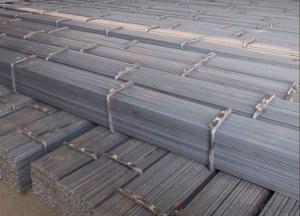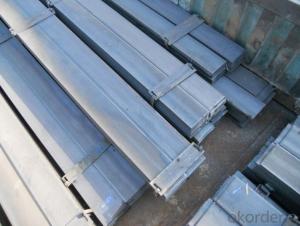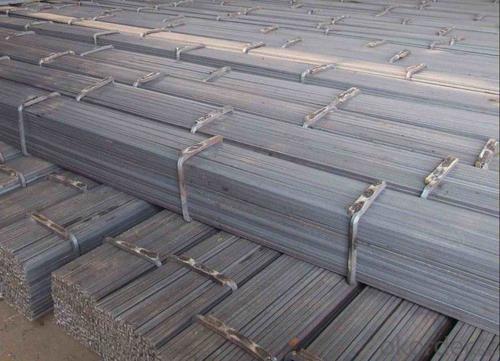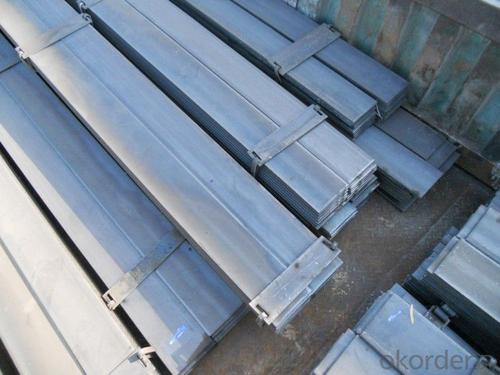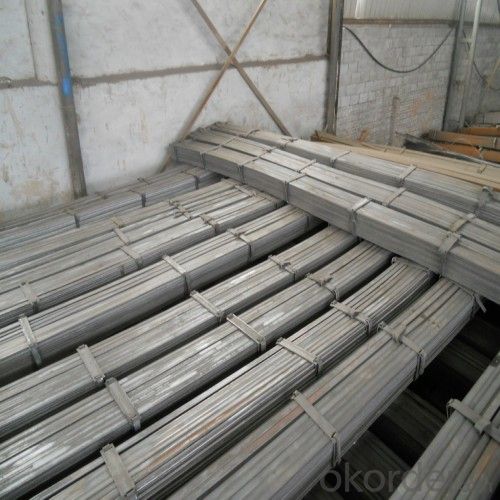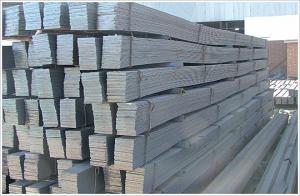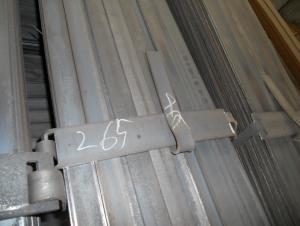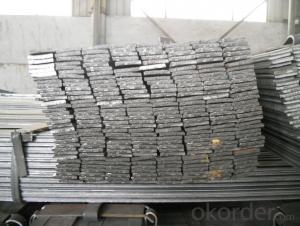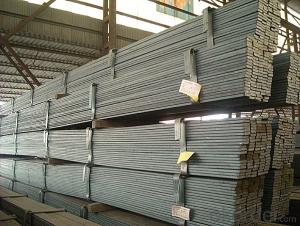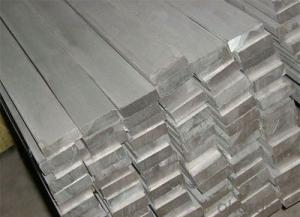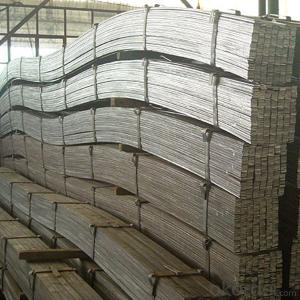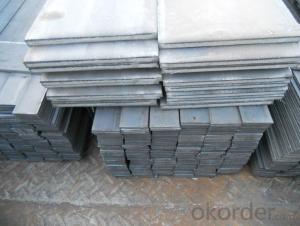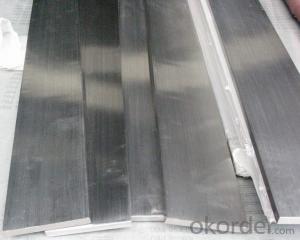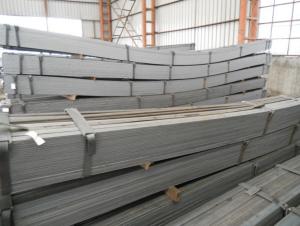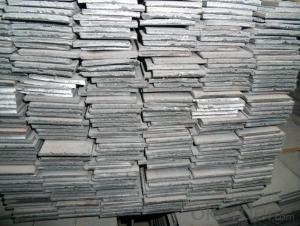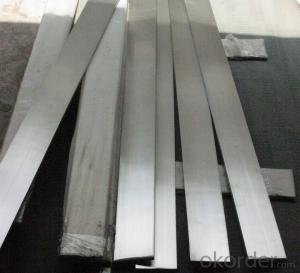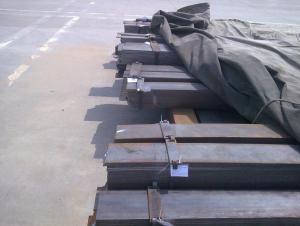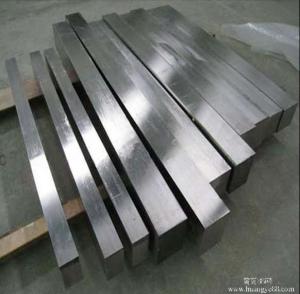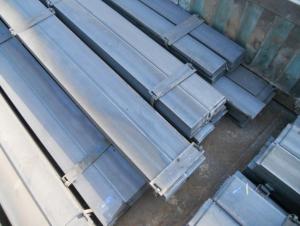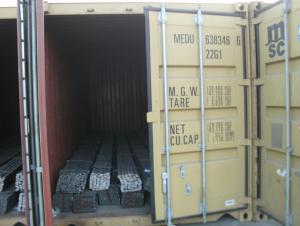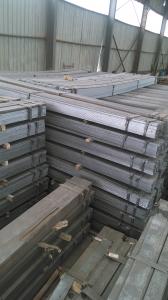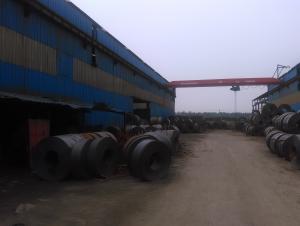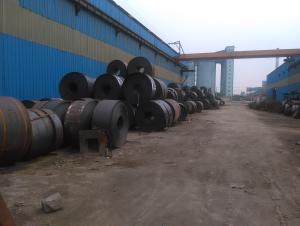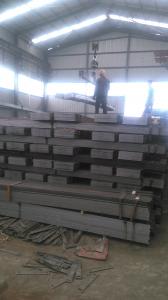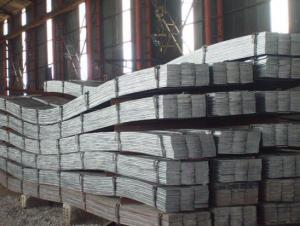Mild steel flat bars with high quality and good price
- Loading Port:
- Tianjin
- Payment Terms:
- TT OR LC
- Min Order Qty:
- 25 m.t.
- Supply Capability:
- 100000 m.t./month
OKorder Service Pledge
OKorder Financial Service
You Might Also Like
Mild Steel Flat Bar Details:
| Minimum Order Quantity: | 25 m.t. | Unit: | m.t. | Loading Port: | China Main Port |
| Supply Ability: | 80000-100000MTS/YEAR m.t./month | Payment Terms: | TT or LC |
Product Description:
Specification of Mild Steel Flat Bar
Commodity: Mild Steel Flat Bar
Standard: GB;JIS
Material: Q195-235;SS400
Brand name: FLATSPACE
Origin place: China
Thickness: 3mm-30mm
Width:20mm-200mm
Length: Max 12m
Certification: SGS/BV
Chemical composition of Q235
Alloy No | Grade | Element(%) | ||||
C
| Mn
| S
| P
| Si
| ||
Q235
|
B
|
0.12—0.20 |
0.3—0.7 |
≤0.045 |
≤0.045
|
≤0.3
|
Physical properties of Q235
Alloy No | Grade | Yielding strength point(Mpa) | Tensile strength (Mpa) | Elongation after fracture(%) | ||||||
Thickness (mm) | Thickness (mm) | |||||||||
≤16 | >16--40 | >40--60 | >60--100 | ≤16 | >16--40 | >40--60 | >60--100 | |||
≥ | ≥ | |||||||||
Q235 |
B |
235 |
225 |
215 |
205 |
375--500 |
26 |
25 |
24 |
23 |
Usage/Applications of Mild Steel Flat Bar
Widely used for construction, Machinery manufacturing, Iron tower steel structure, Shipbuilding; Steel grating, Staircase, Bridge, Viaduct, Railway spare parts, Boilers making etc.
Packaging & Delivery of Mild Steel Flat Bar
Packaging Details: The Mild Steel Flat Bars are packed in bundles and loaded in 20 feet/40 feet container, or shipped by bulk cargo ,also we can do as customer's requirements.
Delivery Details:30~45 days upon the receipt of buyer payment by T.T. or L/C.
Production Flow of Mild Steel Flat Bar
The Mild steel flat bar is made through three processes:
1.Feeding the material: Feeding the row material (the steel plate) to Slitting Line.
2.Slitting:The steel plate would be slitted into expected width by lengthways cutter.
3. Leveled and cutting: The plat bar would be ground into level by the grinder and then cut into required length.
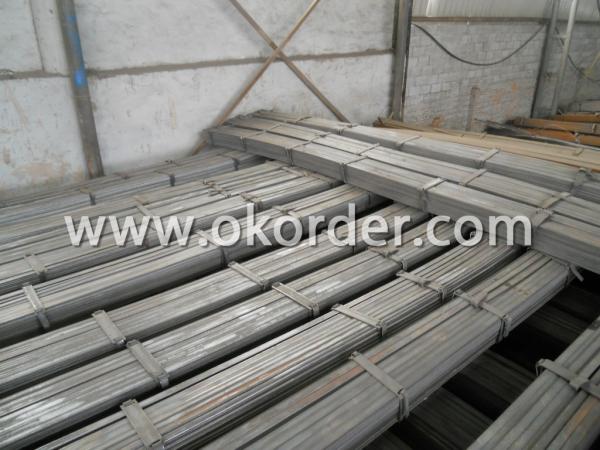
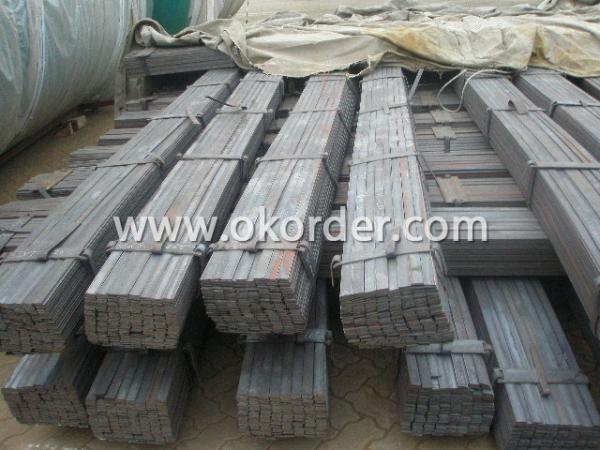
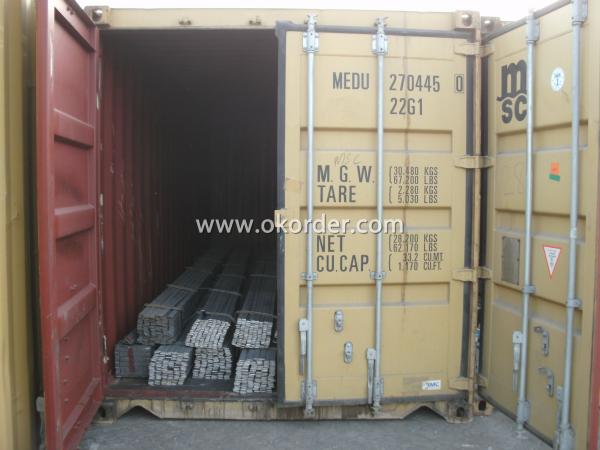
FLATSPACE is specialized in production and sales of slit flat bars. We offered the individuation processing service of slitting and crosscut. Our flat bar the width form 10mm to 1800mm, and thichness from 2.5mm to 25mm.
View Manufacturer's Shop
1. Manufacturer Overview | |
|---|---|
| Location | Hebei, China |
| Year Established | 2009 |
| Annual Output Value | Above US$ 150 Million |
| Main Markets | Southeast Aisa, Middle east, Africa |
| Company Certifications | |
2. Manufacturer Certificates | |
|---|---|
| a) Certification Name | |
| Range | |
| Reference | |
| Validity Period | |
3. Manufacturer Capability | |
|---|---|
| a)Trade Capacity | |
| Nearest Port | Tianjin |
| Export Percentage | 70%-80% |
| No.of Employees in Trade Department | 10-15 people |
| Language Spoken: | English; Chinese |
| b)Factory Information | |
| Factory Size: | Above 20,000 square meters |
| No. of Production Lines | 7 |
| Contract Manufacturing | OEM Service Offered; |
| Product Price Range | Average |
- Q: Are steel flat bars suitable for welding with other metals?
- Yes, steel flat bars are suitable for welding with other metals. Welding steel flat bars with other metals is a common practice in various industries as steel offers good compatibility and excellent weldability with a wide range of metals, including aluminum, stainless steel, and other ferrous and non-ferrous materials. However, it is important to consider the specific properties and compatibility of the metals being welded together, as well as to follow proper welding procedures and techniques to ensure a strong and durable bond.
- Q: What are the standard lengths available for steel flat bars?
- The standard lengths available for steel flat bars vary depending on the manufacturer and the specific requirements of the customer. However, in most cases, steel flat bars are commonly available in lengths ranging from 6 feet to 20 feet or more. These lengths are often determined by the standard sizes and dimensions set by industry standards or customer preferences. It is important to note that custom lengths can also be obtained by cutting or shearing the steel flat bar to the desired size.
- Q: The total floor distribution along the wall surface 40x4 galvanized flat steel, flat paint is painted yellow mark or brush a straight chute
- Hello, the exterior paint of the distribution room can brush green, or other light colored series, shades of light and shade
- Q: Can steel flat bars be used for manufacturing hand tools?
- Yes, steel flat bars can be used for manufacturing hand tools. Steel is a strong and durable material that is commonly used in the production of various hand tools due to its high tensile strength, resistance to wear and corrosion, and ability to be easily shaped and formed into desired tool designs. Flat bars made from steel can be effectively utilized for constructing handles, blades, and other components of hand tools, making them suitable for manufacturing purposes.
- Q: What is the tensile strength of a steel flat bar?
- The tensile strength of a steel flat bar can vary depending on the specific grade and composition of the steel. However, on average, steel flat bars typically have a tensile strength ranging from 300 to 700 megapascals (MPa).
- Q: What are the common methods of joining steel flat bars together?
- There are various ways to connect steel flat bars, depending on the specific needs and application. Here are some commonly used methods: 1. Welding: Welding is a popular technique for joining steel flat bars. It involves melting the edges of the bars and fusing them together with heat, creating a durable and permanent bond. Different welding techniques, like arc welding, MIG welding, or TIG welding, can be used based on the thickness and composition of the bars. 2. Bolting: Another common method is bolting, which entails drilling holes through the bars and fastening them together with bolts and nuts. This approach is often chosen when future disassembly may be required or when welding is not feasible. 3. Riveting: Riveting involves using metal rivets to connect steel flat bars. After drilling holes through the bars, a rivet is inserted and hammered or compressed to secure the connection. Riveting provides a strong and lasting joint, especially when welding is not suitable. 4. Adhesive bonding: Adhesive bonding involves using industrial adhesives to join steel flat bars. A strong adhesive is applied to the surfaces of the bars, which are then pressed together. Adhesive bonding is commonly used when aesthetics, weight reduction, or flexibility are important considerations. 5. Mechanical fasteners: Mechanical fasteners, like clips, clamps, or brackets, can also be utilized to connect steel flat bars. These fasteners are designed to hold the bars in place without the need for welding or drilling. Mechanical fasteners are often employed for temporary or adjustable connections. In conclusion, the choice of joining method for steel flat bars depends on factors such as strength requirements, disassembly needs, aesthetic preferences, and the specific application. It is crucial to carefully consider these factors and seek advice from professionals or experts to determine the most suitable method for connecting steel flat bars.
- Q: Are steel flat bars used in the construction of stadiums or arenas?
- Certainly, the utilization of steel flat bars is widespread in the construction of stadiums and arenas. These bars, known for their versatility, find application in a range of structural tasks such as framing, support beams, and reinforcement. Owing to their immense strength and durability, steel flat bars are commonly favored in extensive construction ventures like stadiums and arenas, as they ensure stability and provide vital support to the edifice. Furthermore, the ease of fabrication and installation associated with steel flat bars make them a highly efficient option for construction purposes.
- Q: What are the weight and load-bearing capacities of different steel flat bar sizes?
- The weight and load-bearing capacities of different steel flat bar sizes vary depending on the specific dimensions and quality of the steel used. Generally, larger and thicker flat bars have higher weight and load-bearing capacities. To determine the exact capabilities, it is necessary to consult engineering tables or reference materials that provide specific load ratings for different steel flat bar sizes.
- Q: Can steel flat bars be used in outdoor applications?
- Yes, steel flat bars can be used in outdoor applications. Steel is a durable and weather-resistant material, making it suitable for outdoor use. However, to prevent corrosion, it is recommended to use stainless steel or apply a protective coating to regular steel flat bars when using them in outdoor applications.
- Q: Are steel flat bars suitable for aerospace applications?
- Yes, steel flat bars are suitable for aerospace applications. Steel is a commonly used material in the aerospace industry due to its high strength, durability, and excellent mechanical properties. Steel flat bars offer a versatile and cost-effective solution for various aerospace components and structures. They can be used for manufacturing aircraft frames, wings, landing gears, and other critical parts that require high strength and rigidity. Additionally, steel flat bars can be easily machined, welded, and formed into different shapes and sizes, making them suitable for a wide range of aerospace applications.
Send your message to us
Mild steel flat bars with high quality and good price
- Loading Port:
- Tianjin
- Payment Terms:
- TT OR LC
- Min Order Qty:
- 25 m.t.
- Supply Capability:
- 100000 m.t./month
OKorder Service Pledge
OKorder Financial Service
Similar products
Hot products
Hot Searches
Related keywords
